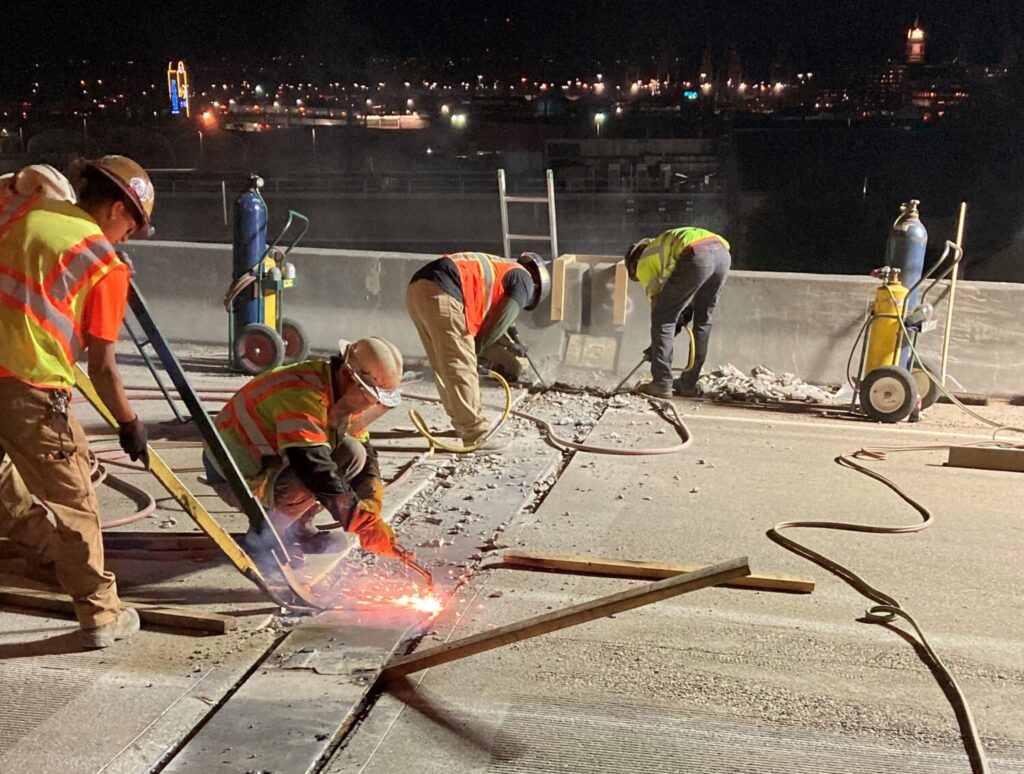Capitol Chatter: City of peace awash in both amity and animosity
Published 4:30 pm Thursday, December 24, 2020

- Capital Chatter square logo
In the season of peace, in the city of peace, this week the Oregon Capitol was awash in both amity and animosity.
The local tourism agency, Travel Salem, promotes the region as “The most Oregon part of Oregon.” That held true during the one-day special legislative session Monday. The dysfunction and violence that have bedeviled Portland for months, gaining national notoriety and splitting the state, moved south to Salem, where most of Oregon’s 90 legislators had gathered to approve coronavirus and wildfire relief legislation.
There is irony that Salem, our state capital and where I live, is named for peace. Maybe it is a sign of the times that the city Peace Plaza, which connects city hall with the city library, is closed because the library is being renovated.
Methodist missionary Jason Lee founded the town as Chemeketa. “In 1846, William Willson renamed it Salem, from the Arabic word salam, which means peace,” according to The Oregon Encyclopedia. However, Encyclopædia Britannica says, “Chemeketa, meaning ‘place of rest,’ was translated into the biblical name of Salem (from Hebrew shalom, ‘peace’).”
As with the two previous special sessions this year, the Capitol remained closed to the public in compliance with Gov. Kate Brown’s COVID-19 restrictions on gatherings. Before and during the session, Senate Republican Leader Fred Girod, of Lyons, and other Republicans lamented the public’s absence. The Legislature was meeting in person only because Brown, lawmakers and lawyers could not agree on the technicalities of holding Oregon’s first-ever remote legislative session.
“It has been a challenge for the public to be heard since March of this year, and this session was no different, Rep. Raquel Moore-Green, R-Salem said in her constituent newsletter Tuesday.
“Compounding issues – the lack of public access and severally limited opportunity for legislators to ask questions and debate at any length do not make good public policy. Public testimony last Thursday and Saturday was to the committee and did not allow for members of the committee to ask questions. Legislators also experienced a new set of ‘rules’ governing this special session that were not discussed by Leadership prior to session convening.”
On Monday, the relief packages passed handily, with the exception of the medical liability measure that House Democrats defeated in committee, and despite sometimes testy exchanges among lawmakers. But Monday evening, landlords filed suit to overturn the state’s continuing ban on evictions.
The contrasting tones inside the building were evident as the Senate opened its floor session.
“Finally, finally, we are in the last month of the infamous 2020,” said the retiring Senate President Pro Tem Laurie Monnes Anderson, D-Gresham, as she delivered the opening words. “Today we take steps to better the lives of Oregonians, like we did in the past two special sessions. This (Senate) and most Oregonians should be proud of what the Legislature has done so far when faced with this crisis. Nothing’s perfect. …
“My wish for everyone here is that you all continue to better Oregon and your community, to feel fulfilled in all that you do, and to have nothing but good for the state of Oregon in your communities. While that may be an overly optimistic wish for some of you, it is sincere. So hello third special session and good-bye 2020.”
Delivering a remonstrance minutes later, Sen. Dallas Heard, R-Roseburg, said: “This is yet another illegitimate special session where you the Democratic majority have declared the people unfit to participate in person in their own Capitol building. …
“You have joined Kate Brown in her campaign of intimidation against the people and the children of God. 1 Samuel 2:10 says, ‘The adversaries of the Lord shall be broken to pieces; from heaven he will thunder against them; the Lord will judge the ends of the earth; he will give strength to his king, and exalt the horn of his anointed.’”
Heard continued: “The anointed king of kings is Jesus Christ, and this is his kingdom, not ours. The days of your unchecked assault against our freedoms and his children is over.”
He then removed his required face mask and challenged Senate President Peter Courtney, D-Salem, to enforce its use. The duo argued whether Heard had used up his allotted speaking time, before Courtney ordered that Heard’s mic be turned off, the first time I recall that happening.
Heard went outside to speak to the crowd protesting the Capitol’s closure and did not vote on any bills.
The Senate had convened at 8 a.m. About 30 minutes later, a group of protesters got into the locked Capitol when someone left a door open while exiting, according to Oregon State Police. Those protesters refused orders from troopers and Salem Police to leave. Over the next hours, the struggle became physical, a protester sprayed a chemical irritant, troopers responded with inert pepper balls, and protesters apparently set off a smoke-emitting device.
The fumes had House Speaker Tina Kotek, D-Portland, and others coughing at times.
About 1:30 p.m., someone broke a door window trying to get in. Two journalists also were attacked.
“As I watched from my office window, those protesters broke the glass on a Capitol door and tried to force their way into the building despite a line of state police barring their entry due to the public health guidelines that closed the building to members of the public,” Rep. Anna Williams, D-Hood River, recounted in her newsletter.
“What’s more, they were protesting over a perceived lack of transparency due to the Capitol being closed, but the legislature went to great lengths to make sure that the public had access to the committee hearings and House and Senate sessions this week, giving members of the public as much transparent access as they have during normal legislative sessions.”
The Legislature took no public testimony on Monday, but a special committee held six hours of hearings last week, with more than 130 people testifying remotely and hundreds submitting testimony via email.
Though the protesters supposedly were seeking public access, in the long-term they may have accomplished the opposite. Legislators immediately proposed bills to ban the public from carrying firearms inside the Capitol, and Courtney and Kotek said the Legislature would look at tightening security.
“All of a sudden I felt like the Capitol had become an armed camp,” Courtney said in a post-session press conference that he and Kotek held via Zoom. “We’re very vulnerable.”
He was proud that the Capitol was one of the most accessible in the nation. Troopers patrol the building but anyone can walk in. There are no metal detectors or, except on special occasions, security checkpoints. People can enter any legislator’s office.
In contrast to Monday’s sometimes-violent protest, a group calling for reopening of schools held a calm, orderly demonstration outside the governor’s official residence the other day. On Wednesday, Brown reversed course, encouraging in-person teaching and announcing that schools no longer had to meet state guidelines in order to reopen.
Demonstrations have become so frequent in the state capital that Salem Police have assembled an FAQ about protests, weapon-carrying by demonstrators, and activities near the gubernatorial mansion.
The document includes this statement: “The City cannot prevent assemblies and marching absent a specific, direct, and actionable threat of violence or property damage. Language has sometimes been offensive, obscene, and personally objectionable, but has not risen to a level to preemptively stop a march. Freedom of speech is protected. Language, however offensive, is not grounds for arrest.”





